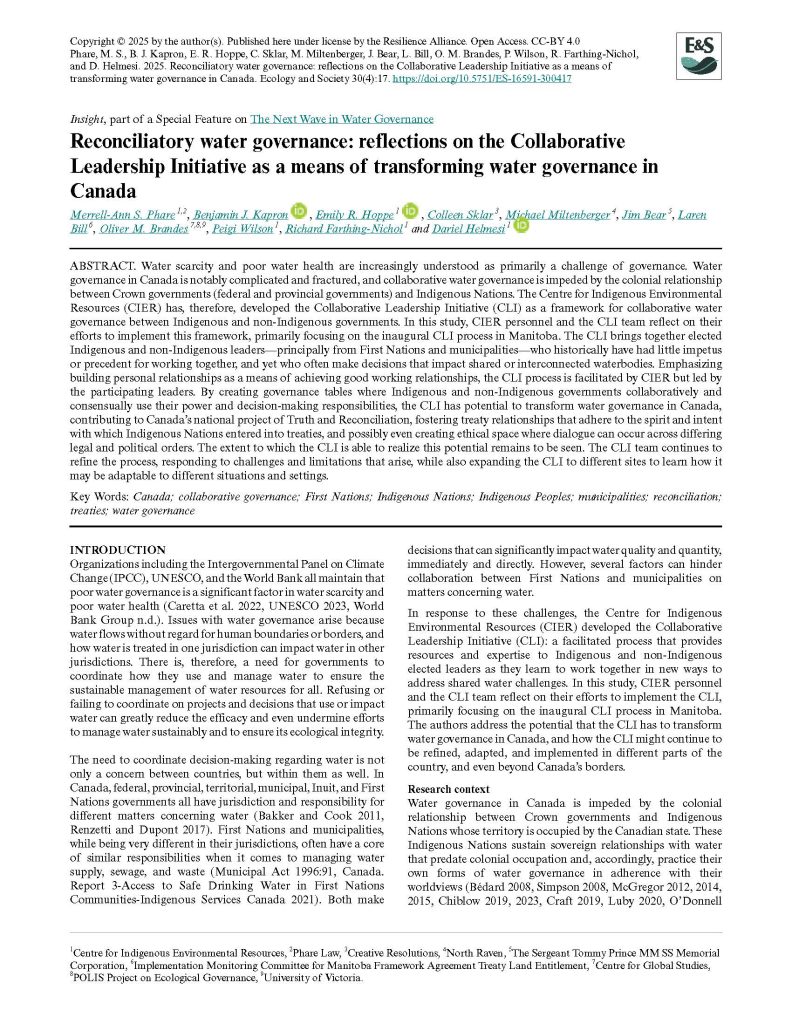
Ecology & Society
Published On: November 5th, 2025
Citation:
Phare, M.-A. S., Kapron, B. J., Hoppe, E. R., Sklar, C., Miltenberger, M., Bear, J., Bill, L., Brandes, O. M., Wilson, P., Farthing-Nichol, R., & Helmesi, D. (2025). Reconciliatory water governance: Reflections on the Collaborative Leadership Initiative as a means of transforming water governance in Canada. Ecology and Society, 30(4), Article 17. https://doi.org/10.5751/ES-16591-300417
Abstract:
Water scarcity and poor water health are increasingly understood as primarily a challenge of governance. Water governance in Canada is notably complicated and fractured, and collaborative water governance is impeded by the colonial relationship between Crown governments (federal and provincial governments) and Indigenous Nations. The Centre for Indigenous Environmental Resources (CIER) has, therefore, developed the Collaborative Leadership Initiative (CLI) as a framework for collaborative water governance between Indigenous and non-Indigenous governments. In this study, CIER personnel and the CLI team reflect on their efforts to implement this framework, primarily focusing on the inaugural CLI process in Manitoba. The CLI brings together elected Indigenous and non-Indigenous leaders—principally from First Nations and municipalities—who historically have had little impetus or precedent for working together, and yet who often make decisions that impact shared or interconnected waterbodies. Emphasizing building personal relationships as a means of achieving good working relationships, the CLI process is facilitated by CIER but led by the participating leaders. By creating governance tables where Indigenous and non-Indigenous governments collaboratively and consensually use their power and decision-making responsibilities, the CLI has potential to transform water governance in Canada, contributing to Canada’s national project of Truth and Reconciliation, fostering treaty relationships that adhere to the spirit and intent with which Indigenous Nations entered into treaties, and possibly even creating ethical space where dialogue can occur across differing legal and political orders. The extent to which the CLI is able to realize this potential remains to be seen. The CLI team continues to refine the process, responding to challenges and limitations that arise, while also expanding the CLI to different sites to learn how it may be adaptable to different situations and settings.


